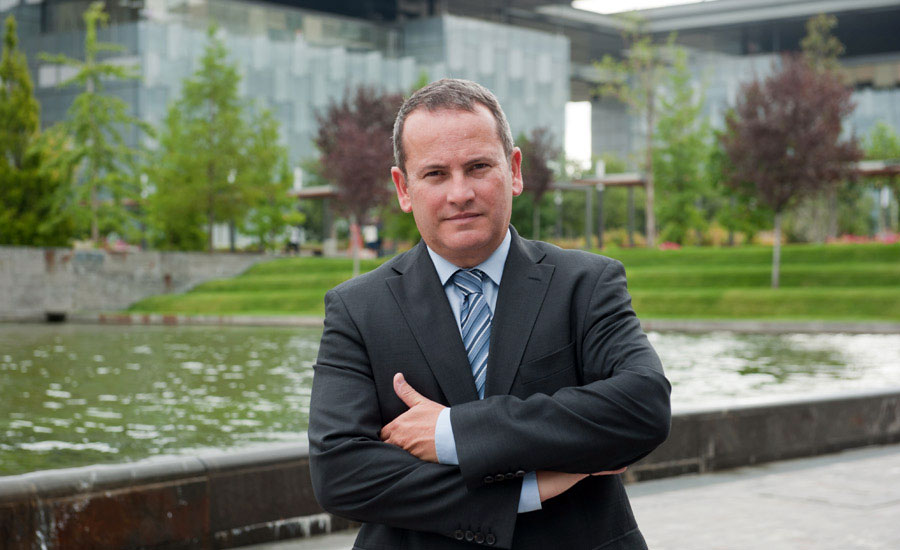
Such is the speed and reach of exponential change in today’s Information Society, that high-tech companies – often cash-rich but more vulnerable to disruption – face the dual challenges of continuous innovation and business model evolution, or “simply disappearing.”
This was the message shared with an audience of IESE MBAs, AMP and PDG participants and alumni at IESE in Barcelona this week by Telefónica’s Chief Commercial Digital Officer, Eduardo Navarro.
You Have to Be Digital
“We realized five years ago that we would need to evolve our business model to keep pace with our changing world. The options were laid on the table. Telefónica could take the route of becoming an infrastructure company like Cisco. Or we could go down the path of becoming a pure Internet – an over-the-top – company.”
The third option was to become a digital telco, leveraging the connection, skills and people to deliver connectivity and more.
“We saw that we’d need to shift focus from offerings like voice to connectivity to service the shift to consumption and generation of data,” says Navarro. “It went beyond connecting people, as Nokia found out, to connecting things. And in this new era the agents of change are the Internet, cloud, big data, social networks and smartphones. Connectivity has become our new oxygen.”
Meeting this demand has meant replacing voice with new products like data, fiber, over-the-top television; a combination of “sustainable business without much growth” and innovation.
“People expect connectivity and pay a fee every month, but we have had to be able to create a layer of innovation.”
And it’s a change in tack that has paid off for Telefónica, where decreasing business in legacy services is “six times less important” than new business growth.
“It hasn’t come without challenges. Traffic growth year over year is at 60 percent which has an impact on capacity. Prices can’t increase – the demand is growing but prices are decreasing.”
Transformation and the capacity to meet continuous challenges is contingent on a “whole organization approach,” says Navarro. “You need to be led and supported by the chairman and the CEO – that’s the key for moving forward.”
What’s up With WhatsApp?
As Telefónica moves into a phase of positive growth, competitive disruption nonetheless remains a constant threat.
“Naturally we have looked at the possibility of WhatsApp replacing text messaging, and we’ve reviewed our options.”
Creating a similar service, says Navarro, is not a problem of technology. This issue is interoperability.
“Leveraging disruptive technology, creating apps, is not an option – whatever we created would need to be compatible with other service providers which is impossible.”
But the emergence of new services leveraging information and the sharing of data is a function of the changing marketplace, he acknowledges.
“We’re moving towards a new model of marketplace using the information society – one that is based on existing services or content that maps to demand. Airbnb is a model that doesn’t use hotels. Facebook is a communication platform that produces no content.”
What will differentiate Telefónica and undergird its value proposition as a company, says Navarro, is trust – and the protection of data.
Data is the New Currency
“New business is about getting information and processing it. In our new world data is the most important raw material – it’s worth more than money.”
The biggest issues facing business of today and tomorrow, says Navarro, are privacy and security.
“Information can only be lost once, as we’ve seen in the headlines this week. So how can we assume our data is protected?”
Navarro believes that telcos are in a unique position to leverage data protection services as a value proposition.
“We’ve understood that our main product is data. Human beings generate data all day, but the question is: who owns it? We take the view that users are customers. Our customers pay us so we have the responsibility to let them know about the data that’s being transferred. Transparency about data is fundamental.”
And in terms of inhabiting the same marketplace as emerging product and service providers, Navarro calls for a “level playing field.”
“We’d like to see that the same services are governed by the same rules, the same protection and the same rights.”